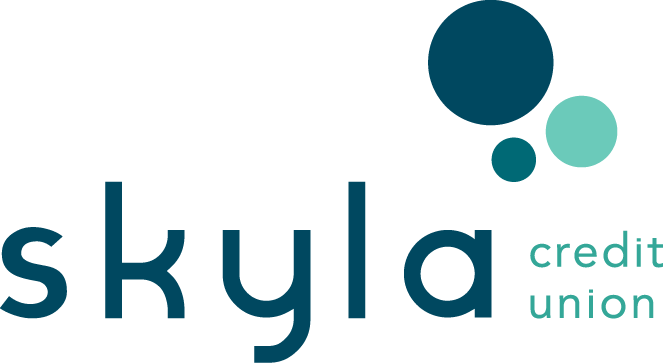How Much Should I Actually Save for Retirement?

Be honest – how many times have you been sitting at work picturing life in retirement? Maybe you’re sitting on a beach, in a cabin in the mountains, traveling to your bucket list destination, or just cuddled up with a good book at home. No matter what your retirement goals are, one question stays the same - how can I save and plan for the lifestyle I want in retirement?

I get it– the fear is real when thinking about retirement because you’ll no longer have that steady paycheck like you do when working. But, with a bit of planning and saving, life in retirement doesn't have to be a scary thing. Instead, you can focus on living a better life, moving somewhere new, or even traveling the world. That sounds exciting, right?!
When planning for retirement, you want to have a sizable nest egg (i.e. savings account) ready. Retirement planning takes many years of financial dedication, but you can do it and I'm going to teach you how.
At Skyla, our Investment Services team helps members prepare for these uncertainties, which is why I'm going to share their knowledge so you're on the right path to living a happy and financially healthy life when you're ready to throw in the work towel.
here’s what we’ll cover
|
|
 when should i start saving for retirement?
when should i start saving for retirement?
Ideally, you want to start planning retirement early (preferably in your 20s) but if you haven’t started yet, you should start saving for retirement today. Even putting away $5 at a time will grow over time, and creating that habit of saving for retirement is crucial.
IS IT TOO LATE TO START PLANNING FOR RETIREMENT AT 40 OR OLDER?
Nope! It’s never too late to start planning and saving money for retirement. You may need to wait a little longer to retire, but this doesn’t mean you can’t ever get there. One thing to keep in mind- when starting to plan for retirement at an older age, you may need to save more money each month which could mean it’ll take more time to reach your savings goals. But it’s certainly not impossible.
To help you along your journey, get financial advice as you build your savings. That way, you are giving yourself the best opportunity for a solid financial future through your retirement years.
 how much money do i need for retirement?
how much money do i need for retirement?
There is no exact figure that tells you how much you'll need. Everyone's needs for retirement aren't the same. Plus, some people retire earlier or later, so this truly depends on your retirement goals and retirement lifestyle. The amount of money needed for retirement also depends on the income received from social security or pensions.
Here are some actionable steps you can take to determine how much money you'll need:
- Calculate Your Expenses: When planning for this, you need to determine the amount of money you'll need to fund the kind of lifestyle you want. To help you figure out the amount of money you'll need, look at your current expenses and factor in all costs. This can be food, transportation, travel, clothing, insurance, utilities, medical bills, etc. Your savings in retirement will cover the same expenses you had before retirement. Don’t forget to include rough estimates for additional housing costs (like a retirement home) when you do the math.
QUICK TIP: Before heading into retirement, try to make sure you’re debt-free. This includes having home loans, auto loans, personal loans, etc., all paid off. That way, you can truly enjoy the money that's yours, rather than it going to loan payments. If you want to have a game-plan, check out this article on the7 Steps to Paying Down Debt. |
- Determine Your Annual Savings: Earlier I said it's never too late to start planning and saving money for retirement. I meant it! Fidelity suggests you aim to save at least 1 -2X your starting salary if you're in your 30s, save at least 3-4X your income if you're in your 40s...
WHAT DOES THIS MEAN? |
retirement calculator
When determining how much you'll need to have saved up when it's time to retire, Skyla's retirement savings calculator is a great starting point in figuring out your goal number.
Saving for any goal should be your number one priority, and that includes retirement. So, to help save as much as possible, it would be beneficial if you look for ways to cut costs. If you want something, try taking a step back before purchasing to ensure it's worth it. Also, as your salary goes up, so should your savings. Even though the comfort level in spending money has increased, try to keep your spending habits consistent.
To help you stay on track with saving, use the steps listed in this article about Saving for a Goal to determine how frugal you should be. Psst... It's a savings article for beginners, but there are plenty of tips and tools included to help you avoid spending and save more money.
 what are some additional sources of income for retirement?
what are some additional sources of income for retirement?
This is an additional and smart actionable step to take when saving for retirement. Once you've calculated your savings and have determined how much you need for retirement, it's time to add more sources of income. The sources of income include

- Social Security: This program provides replacement income for retirees and their families. You must have enough credits throughout your career to qualify for the program and can start receiving Social Security benefits as early as 62. Check out more details from the Social Security Administration.
- Pension Plan: It’s possible your employer contributes to a pool of funds for a worker's future benefit. Pensions are becoming increasingly rare, so it's important to ask your employer if they provide this.
- 401(k) Plan: This is a popular retirement savings plan employers offer. It gives employees a tax break on the funds they contribute, which are automatically withdrawn from the employee's paycheck. However, not every company offers a 401(k) plan, so contact your employer and ask about their plan.
QUICK TIP: Many companies will match a percentage of your contributions. If your employer does 401(k) matching, make sure to contribute a portion of your paycheck into your 401(k) so you can take advantage of the company match! |
- 403(b) Plan: This is another popular retirement savings plan (similar to a 401(k) plan) that's designed for non-profit employees within public schools and other tax-exempt organizations.
- Individual Retirement Account(IRA): This is a type of savings account you set up at a financial institution where you can save money for retirement in a tax-advantaged way. There are different types of IRA you can set up at a financial institution.
- Traditional Individual Retirement Account (IRA): This account allows individuals to make pre-tax contributions and the investments in the account grow tax-deferred until you withdraw them in retirement.
- Roth Individual Retirement Account (IRA): This account allows individuals to contribute money they’ve already paid taxes on and once you start withdrawing the funds, the money is tax-free.
- Rollover Individual Retirement Account (IRA): This is an account that allows you to move eligible funds from your employer-sponsored retirement plan into an IRA. This retirement plan includes 401(k), 403(b) into an IRA.
- Other assets (gifts, inheritances, real estate, etc.): This obviously depends on the value of the assets received. If there’s great value in the asset, this might help with inflation.
QUICK TIP: When it comes to saving for retirement, you want to avoid spending. Inflation is a decrease in money's purchasing power, increasing the price for food, transportation, healthcare, etc., in an economy. In turn, this can affect the amount you'll need to have saved for your savings goal. |
how can skyla help?
Do you offer savings accounts for retirement?
It's always best to utilize your financial institution to help with your retirement savings plan. Here's a list of savings accounts you can open at Skyla.
- Individual Retirement Accounts (IRA): Members can take advantage of saving for retirement – tax-free with a wide range of IRA options making saving for retirement simple.
- Primary Savings: Your $5 minimum opening deposit not only opens the door to a comprehensive suite of products, having a primary account makes you a shareholder of the credit union.
- Money Market: Offering a higher interest rate, without losing access to your funds – whenever you need it. Money Market accounts are ideal for those who maintain higher account balances but prefer anytime access.
- Certificate of Deposit (CD): Skyla’s CD accounts produce a guaranteed rate of return on your savings. Get started with a minimum $500 opening deposit and choose your 6- to 60-month term. Dividends are compounded and credited monthly. Check it out!
investment services
Yep! Skyla's mission is to help you achieve the financial future you’ve always imagined. Our Investment Services experts are committed to listening to your individual needs and finding creative ways to help you realize your financial goals. And the services are free.

- Reviewing Your Current Financial Plan
- Retirement Planning
- IRA, 401(k), 403(b), 457 plans, and TSP Rollovers
- Tax Efficient Investments**
- Retirement Income Strategies
- Life and Long-Term Care Insurance
- And more.
Investment Services are offered through CFS* Check the background of this firm on FINRA’s BrokerCheck
ready to take action in your retirement planning?
here's what's next 
I know I "Psst..." and "QUICK TIP-ped" the heck out of this article, but those tips will help as you're planning for retirement. Remember, everyone's needs for retirement are different; just make sure you start saving for retirement today. The sooner you start investing, saving money, and creating retirement accounts for financial security - the sooner you'll be able to reach your retirement goals and enjoy a happier and financially secure retirement.
⚠ Are you approaching retirement and you feel like you're still not ready to bid your employer "adieu"? Contact our Customer Service Representatives. You can send an email, give us a call at 704.375.0183, or visit any of our branches.
ok, so here’s the fine print:
*Non-deposit investment products and services are offered through CUSO Financial Services, L.P. (“CFS”), a registered broker-dealer (Member FINRA / SIPC) and SEC Registered Investment Advisor. Products offered through CFS: are not NCUA / NCUSIF or otherwise federally insured, are not guarantees or obligations of the credit union, and may involve investment risk including possible loss of principal. Investment Representatives are registered through CFS. The Credit Union has contracted with CFS to make non-deposit investment products and services available to credit union members.
**For specific tax advice, please consult a qualified tax professional.
As the Content Specialist and author of the Learning & Guidance Center, Yanna enjoys motivating others by uncovering all that's possible in the world of finance. From financial tips and tricks to ultimate guides and comparison charts, she is obsessed with finding ways to help readers excel in their journey towards financial freedom.
more resources for your financial journey
How Do I Start Saving for My Goals?
Have trouble saving money to reach your goals? Here are some effective steps and tools available to help you get started.
9 min. read
7 Steps to Paying Down Debt
Need solutions to pay down your debt and you don’t know where to start? Your answers are here with tools available so you can get started today.
12 min. read




.png)